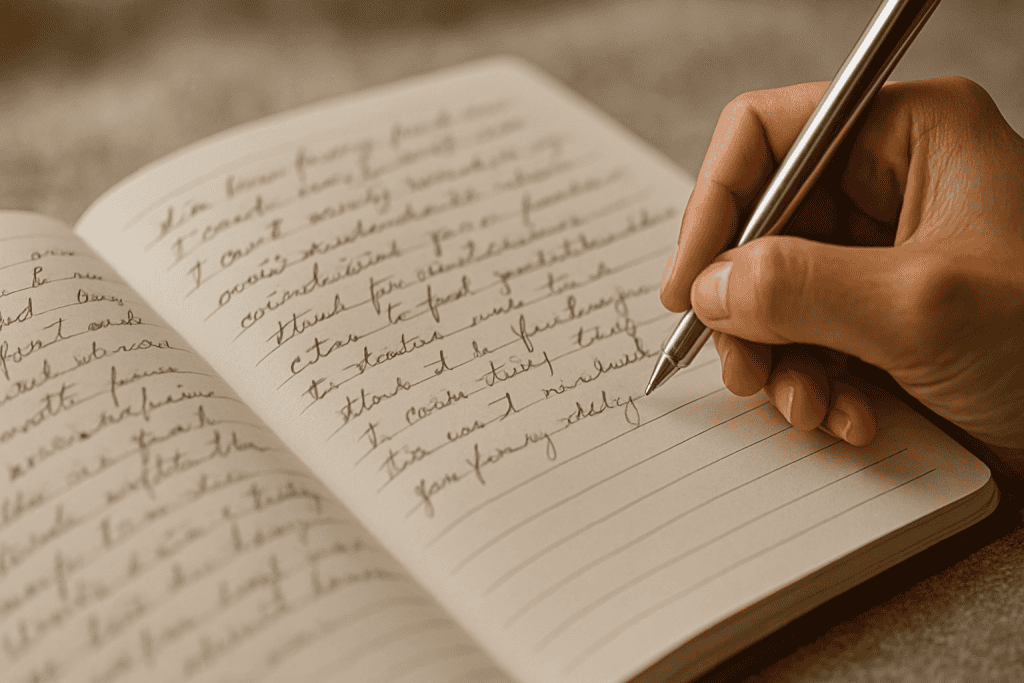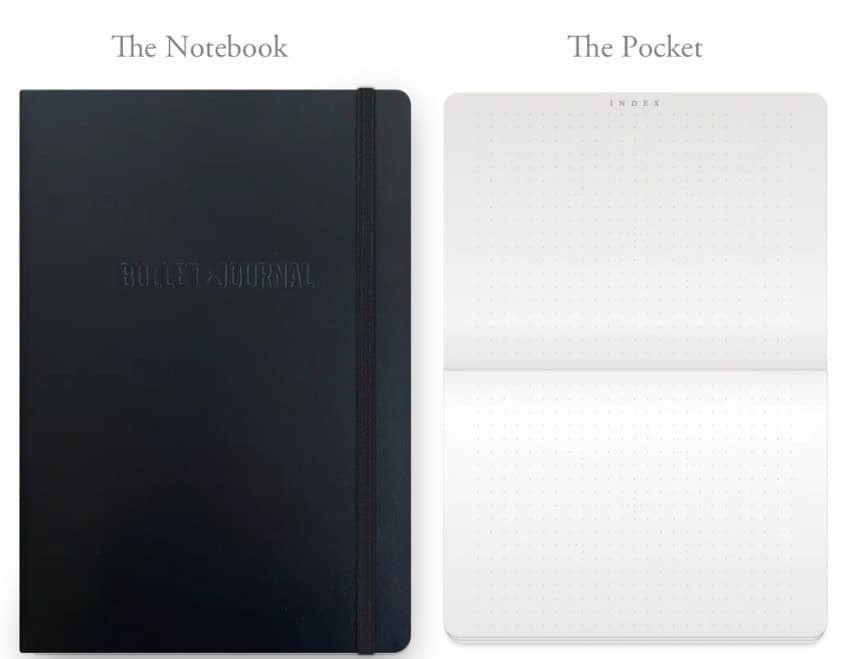The information on this site is free. However, we partner with companies that offer products that help our readers achieve their goals. This site contains affiliate links, and we may get commissions for purchases made through links and ads to support this site at no additional cost to you. Please read my disclosure for more information.

Top 10 Benefits of High-Agency…
- Adapt Quickly to Change
- A broad knowledge base and initiative make generalists flexible in fast-moving, uncertain environments.
- Solve complex, cross-functional problems
- Thinking across disciplines, allowing you to see patterns, integrate ideas, and tackle challenges others miss.
- Create Your Opportunities
- High agency means they don’t wait for doors to open— they build their own and invite others in.
- A Natural Leader in Ambiguity
- When the path isn’t clear, you’re the one who steps forward, takes action, and guides others.
- Learn Fast and Apply Faster
- Constantly absorbing, synthesizing, and deploying knowledge are valuable assets in any setting.
- Bridge Silos and Foster Collaboration
- Generalists with high agency connect people, ideas, and departments, increasing innovation and team effectiveness.
- Resilient and Self-Reliant
- Not easily discouraged by setbacks. They adjust, recalibrate, and keep moving.
- Thrive in Nonlinear Careers
- Not boxed into one role or path. Their skills open up diverse possibilities and unconventional career wins.
- Stay Future-Proof
- In a world where skills constantly evolve, their ability to learn and act gives you an edge that specialists may lack.
- Use Journaling to Gain Strategic Clarity
- Reflective writing helps them harness their momentum, clarify their next moves, and align their actions with their long-term vision.
Pros and Cons of being a High-Agency Generalist
High-Agency Pros
High-Agency Cons
Unleash Your Edge as a High-Agency Generalist
I help operations leaders, career-minded professionals, and high-agency generalists harness the power of Lean, analytics, and digital transformation—paired with real-world journaling and resilience strategies—to build careers and teams that thrive in any environment.
High-agency generalists thrive by taking action, learning fast, and solving complex problems across domains. Journaling sharpens this power—helping you reflect, adapt, and align your thinking for maximum impact. This site is your guide to intentional growth through writing, reflection, and bold execution.
Journaling Ideas: Be Resilient with Intention.
Journaling Ideas aren’t just about writing — they’re about becoming. Explore intentional journaling ideas and techniques that help you build resilience, master your mindset, and live with direction. Highlighting their mental health benefits, these journaling ideas emphasize self-reflection.
Start where you are. Grow with intention.
Are you ready to build real resilience and take control of your life? This collection of daily journal ideas is designed for beginners who want to grow stronger, think clearer, and live with purpose. Start today!
Incorporating journaling into your daily routine can significantly contribute to personal development.
Discover practical tools, prompts, and strategies that support mental and physical health resilience. All of this can be achieved through intentional journaling and daily habit tracking.
Documenting daily events helps you reflect on everyday life and facilitates self-expression.
The Benefits of Being a High-Agency Generalist: Journaling Ideas and Journal Prompts for Continuous Growth
One of the greatest benefits of being a High-Agency Generalist is the ability to thrive in complexity, adapt quickly, and create value across multiple domains. But with that versatility comes the challenge of staying focused, organized, and intentional. That’s where journaling becomes an indispensable tool—not just for self-reflection, but as a strategic asset in your productivity and development toolkit.
Incorporating journaling into your workflow allows you to capture fleeting insights, track personal and professional progress, and prioritize what truly matters. Whether you’re managing multiple projects, switching contexts, or designing solutions across fields, journaling brings clarity to chaos. It helps you zoom out to see patterns and zoom in to take targeted action—all essential traits for high-agency generalists navigating fast-paced environments.
Journaling ideas tailored for High-Agency Generalists can include:
- Daily “3 Wins” logs to build momentum
- Weekly review pages for refining goals and decisions
- Reflection prompts for evaluating leadership, mindset, and adaptability
- Problem-solving logs for documenting creative approaches across domains
Effective journal prompts might include:
- What challenge did I face today that required cross-functional thinking?
- How did I take initiative today, and what did I learn from it?
- What system, idea, or framework did I connect across disciplines this week?
- What’s one way I can better align my time with my long-term goals?
Why should journaling be part of your tech toolkit? Because in a world full of apps, notifications, and shifting priorities, journaling offers an analog pause—a moment to reflect, recalibrate, and move forward with purpose. It integrates seamlessly with digital tools like task managers, knowledge bases, and analytics dashboards, but it grounds you in self-awareness and intention—two things no app can automate.
For High-Agency Generalists who are constantly building, iterating, and leading, journaling is not just a habit—it’s a strategic edge.
The Journaling Journey: Ideas, Tools, and Techniques for Self-Improvement, Resilience, and Success – A Guide for Beginners and Experts.

From creative prompts that spark introspection, the journaling process is a vital ritual that begins with selecting an inspiring journal, encouraging consistency in writing.
We’ll explore how the simple act of journaling can transform your mindset, and the importance of journaling prompts to assist writers in overcoming writer’s block.
Welcome to The Journaling Journey: Your Guide to Self-Discovery, Resilience, and Success Through the Power of the Pen
Embark on a transformative adventure where pen meets paper, and self-reflection leads to personal growth. Whether you’re a curious beginner looking to begin writing or a seasoned journal keeper, this comprehensive guide offers a wealth of journaling ideas, self-improvement techniques, and tools to build resilience and achieve success. Journaling provides a safe space to express your innermost thoughts and feelings. From creative prompts that spark introspection to practical strategies for developing a growth mindset, we’ll explore how the simple act of journaling can become a powerful catalyst for positive change.
In this digital age, the art of journaling stands as a timeless practice, offering a sanctuary for your thoughts and a canvas for your dreams. We’ll delve into various journaling methods that cater to different personalities and goals, ensuring you find the perfect fit for your unique journey. Journaling in the morning can harness the power of the subconscious mind. Discover how to use stream of consciousness journaling as a tool for stress relief, goal setting, and cultivating gratitude – essential elements in building a resilient mindset.
For beginners, we’ll start with the basics, guiding you through choosing the right journal and establishing a consistent practice. For experienced journalers looking to develop a journaling habit, we’ll explore advanced techniques to deepen your self-awareness and enhance your personal growth journey. Along the way, we’ll introduce you to a curated selection of supplies and tools that can elevate your journaling experience, from beautifully crafted notebooks to mindfulness-enhancing apps.
Let’s begin this inspiring journey together, one page at a time, and unlock the full potential of journaling in everyday life as a path to mindfulness, self-improvement, and personal excellence.
Here, we provide journaling ideas that are transformative, enlightening, and deeply personal. Millions have embraced journaling as a pathway to self-discovery and creativity. It’s an effective way to document life’s journey while addressing negative emotions.
Numerous types of journals can be created, each with its unique purpose and benefits. Let’s delve into the vast world of journaling and explore this diversity.
Whether you’re just starting with a journaling practice for success and self-improvement or looking for new ways to spice up your practice, we have many journaling ideas here, and a wide range of supplies and tools are available to help you succeed. Journaling for Beginners or Journaling for Mental Health: From traditional pen and paper to digital apps and creative supplies, the key is to find the best method for you and stick with it. So grab your favorite notebook and pen, fire up your computer or phone, and start journaling your way to success.
Remember, there’s no one-size-fits-all when it comes to journaling. The type of journal you choose should resonate with your journaling ideas, needs, interests, and lifestyle. Whichever type you choose, know that journaling can be incredibly therapeutic and rewarding, especially after a stressful or traumatic event. So, pick up that pen and let your journey of self-discovery begin!

The Many Faces of Journaling: An Inspiring List of Journal Types You Can Create
- Bullet Journaling: A structured, flexible system for tracking tasks, events, and notes in an organized manner.
- The Blank Notebook Journal is a blank canvas for your thoughts, feelings, and ideas. It is the most traditional form of journaling, and you’re free to write about anything that comes to mind. However, a blank page can create anxiety for writers unsure of what to write. Solutions like journal prompts can help overcome this ‘blank page syndrome’ and encourage consistent journaling.
- The Dream Journal: A dedicated space to record your dreams and analyze their meanings. It can be a fascinating exploration of your subconscious.
- Artistic Journal: A vibrant blend of art and words where creativity takes center stage. Sketch, doodle, paint, or collage – the choice is yours.
- Food Journal: Document your culinary adventures or track your nutritional habits. This can be particularly useful for those with dietary goals.
- Gratitude Journal: A daily practice of writing down things you’re thankful for. It can have profound effects on your overall happiness and well-being.
- Reading Journal: A place to jot down your thoughts, reflections, and favorite quotes from the books you read.
- Personal/Diary Journaling: A private space to express your deepest thoughts, feelings, and experiences.
- Reflective Journaling: A thoughtful practice of introspection and self-evaluation, often used to gain insights and foster personal growth.
- Video Journaling: A digital take on journaling, where you record your thoughts and experiences on camera. Additionally, using a notes app offers flexibility for capturing spontaneous thoughts and ideas when traditional tools are not accessible.
- Travel Journaling: Capture the essence of your journeys, from thrilling adventures to quiet moments of discovery.
- The Sporadic Journal: An irregular, free-form journal for those who prefer to write as and when inspired.
- The Unsent Letters Journal: A therapeutic outlet to express feelings or thoughts that you may not be ready to communicate directly.
- Morning Pages Journal: A practice of writing first thing in the morning to clear your mind and spark creativity
- Ideas Journal: A dedicated place to jot down all your brilliant ideas – big or small.
- Creative Writing Journal: A space to experiment with different styles of writing, from poetry to short stories.
- Doodle Journal: A fun and relaxing way to express yourself through simple drawings.
- Daily Journaling: A commitment to write every day, fostering a regular habit of self-reflection.
- Visual Journaling: Combines images and words to create a visually appealing record of your thoughts and experiences.
- Stream of Consciousness Journaling: A freewriting exercise where you pen down your thoughts as they flow without worrying about grammar or punctuation.
- And many more…

Top 10 Benefits of Journaling…
- Increased self-awareness: Journaling allows you to reflect on your thoughts, emotions, and experiences, helping you gain a deeper understanding of yourself. It serves as a powerful tool for gaining a better understanding of one’s thoughts and emotions.
- Stress reduction: Writing down your thoughts and feelings can be cathartic, helping reduce stress and anxiety. Journaling can enhance emotional well-being by providing a structured way to engage with one’s inner experiences.
- Improved mental clarity: Journaling can help organize your thoughts and clarify your goals, making it easier to prioritize and make decisions. It helps individuals gain clarity of their thoughts and feelings.
- Emotional healing: Expressing your emotions through journaling can provide a sense of release and healing. It allows you to process difficult experiences and develop emotional resilience.
- Enhanced creativity: Journaling encourages free-flowing thoughts and ideas, stimulating your creative thinking and problem-solving abilities.
- Personal growth: By regularly journaling, you can track your progress, set goals, and identify areas for personal improvement. It serves as a tool for personal growth and development.
- Memory enhancement: Writing about your daily experiences and memories can improve memory retention and recall.
- Improved communication skills: Journaling can help refine your writing skills, allowing you to express yourself more effectively in all areas of life.
- Increased mindfulness: Sitting down and writing in a journal encourages mindful awareness, bringing you into the present moment.
- Record of life events: Keeping a journal creates a valuable record of your milestones, accomplishments, and lessons learned. It becomes a cherished keepsake for future reflection.
Pros and Cons of Journaling for Self-improvement
Journaling Pros
Journaling Cons
Journaling for Self-Improvement: The Best Supplies for Beginners and Experts
Suppose you’re looking for a simple and effective way to boost your productivity, manage your stress levels, or gain a newfound clarity and focus. In that case, journaling may be the perfect solution. Journaling is a powerful tool that can help you process your thoughts and emotions, boost your physical health set goals, and track your progress. Putting pen to paper as a traditional journaling technique can significantly enhance this process by facilitating clearer expression of thoughts and emotions. In this blog, we’ll explore the best journaling supplies for beginners, from pens and notebooks to planners and apps. Whether you’re new to journaling or looking for fresh inspiration, we’ve got you covered. Getting started with journaling, especially during challenging times, can be a therapeutic tool to express your thoughts and emotions.
-
The Best Pocket Journal: Compact Solutions for Your Thoughts on the Go
Introduction to Pocket Notebooks Pocket notebooks have become an essential tool for those who value portability and efficiency in their daily lives, and they often stick to their routine. Whether you’re a creative thinker, busy professional, or just someone who loves jotting down thoughts on the fly, pocket journals offer a convenient way to capture inspiration wherever you go. With…
-
The Best Bujo Journals for Organized Living: Your Essential Guide
Introduction to Bullet Journaling The bullet journal method is a simple method that powerful and minimalist productivity system that helps you organize your life with clarity. Created by Ryder Carroll, the bullet journal—often called “BuJo”—uses a pen and notebook to capture tasks, track goals, and reflect on progress. Whether you’re a busy professional or someone looking for more mental space,…
-
Maximize Your Productivity with a Bullet Journal in a Pocket Notebook
Introduction to Productivity A bullet journal in a pocket notebook is a powerful tool for maximizing productivity and staying organized while on the move, creating a space wonder for your thoughts. Its compact size allows you to carry your system wherever you go, making it easy to capture ideas, manage tasks, and plan your day with precision. By combining the…
-
5 Best Bullet Journals for Beginners: Find Your Perfect BuJo Companion
Introduction to Bullet Journals Hey there, fellow BuJo enthusiasts! Did you know that bullet journaling has exploded in popularity, with over 8 million #bulletjournal posts on Instagram alone? Whether you’re a seasoned pro or just dipping your toes into bullet journaling, this guide is perfect for bullet journal beginners. Finding the ideal journal can make all the difference. In this…
Journaling Ideas FAQ’s:

How does journaling for self-improvement help with personal growth?
Journaling for personal growth helps with personal development. It allows one to express journaling ideas through self-reflection and mindfulness, which can be especially beneficial for those with post traumatic stress disorder clarify thoughts and emotions, set goals, and track progress. Recording personal thoughts and feelings can enhance emotional well-being. Writing about stressful and traumatic events is significant as it can positively impact both physical and emotional health.
How do I start journaling for self-improvement?
- Find a quiet and comfortable space.
- Set aside dedicated time for self-journaling each day.
- Begin by writing freely and without judgment. Start writing to explore your personal thoughts and feelings.
- Reflect on your thoughts, emotions, and experiences.
- Consider using prompts or prompts to guide your writing. Practice writing continuously for a set period to explore deep thoughts and emotions.
- Write honestly and authentically about your feelings and thoughts.
- Remember that self-journaling is for your personal growth and reflection. Stay consistent with your practice to reap the benefits over time.
How do you write to improve yourself and achieve your goals in your journal?
Write regularly and consistently, journaling ideas. Set goals for your personal development and write them down. Reflect on your progress and identify areas for improvement. Be honest and self-aware in your writing. Experiment with different writing techniques and styles, including free writing. Capturing thoughts and emotions in written form can lead to emotional healing and a better understanding of one’s feelings. Use your journal as a tool for self-reflection and self-motivation. Studies have highlighted the benefits of writing, particularly in gratitude journaling and emotional processing, showing that participants who wrote about their experiences experienced significant psychological and health-related improvements.
How do you grow through journaling?
Set aside regular time each day for journaling. Write freely without judgment, focusing on your thoughts and feelings. Reflect on your experiences and explore various topics of interest. Use improvement journal prompts or specific questions to guide your writing. Experiment with different journaling techniques, such as gratitude journaling or goal setting. Review and reflect on your journal entries periodically to track personal growth.
Journaling for Stress Relief and Emotional Well-being
Journaling is a powerful tool for managing stress and enhancing emotional well-being. By putting pen to paper, you can effectively process negative emotions and engage in emotional expression. This practice, known as expressive writing, allows you to explore your deepest thoughts and feelings, providing a sense of relief and clarity.
The Healing Process of Journaling
Engaging in a journaling practice can be a transformative healing process. As you write in your journal, you allow yourself the freedom of free writing, where thoughts flow without restriction. This can lead to new ideas and insights, helping you understand your future self and the path you wish to take. Journaling provides a safe space to explore difficult emotions, aiding in emotional healing and personal growth.
Journaling Techniques for Emotional Expression
Many people find that using journaling ideas for daily reflections fosters mindfulness and clarity in their lives. Incorporating specific journaling ideas can create a more impactful and personalized experience.
There are various journaling techniques to help with emotional expression, such as stream of consciousness journaling, where you write continuously without worrying about grammar or structure. This method encourages a deeper understanding of your inner world and can be particularly beneficial when you feel sad or overwhelmed. By regularly writing in your journal, you can track your emotional journey and witness your progress over time.
Remember that journaling ideas can be adapted to fit your personal needs, making journaling a flexible and rewarding practice.
Using Journaling Prompts for Insight
Journaling prompts are an excellent way to guide your writing and explore specific themes or questions. These prompts can help you delve into your thoughts and feelings, providing structure and focus to your journaling practice. Whether you’re exploring past experiences or envisioning your future self, prompts can spark introspection and lead to meaningful insights.
The Benefits of Journaling for Mental Health
Research suggests that journaling offers numerous benefits for mental health, including reducing symptoms of anxiety and depression.
By consistently writing about your experiences and emotions, you can gain clarity and perspective, improving your overall mental and physical health.
Journaling for Personal Growth and Self-Discovery
Journaling is not just about processing emotions; it’s also a tool for personal growth and self-discovery. By setting aside time each day to write freely, you can explore your values, beliefs, and aspirations. This practice encourages self-reflection and helps you identify areas for improvement, fostering a growth mindset and a positive perspective on life.
Tips for Starting Your Journaling Practice

- Choose a journal that resonates with you, whether it’s a beautifully crafted notebook or a digital notes app.
- Set aside a few minutes each day for journaling, making it a part of your daily routine.
- Begin writing without judgment, allowing your thoughts and feelings to flow freely.
- Use journaling prompts to guide your writing and explore specific topics.
- Reflect on your journal entries periodically to track your progress and gain insight into your personal growth journey.
By incorporating journaling into your life, you can experience the numerous benefits it offers for mental health, emotional well-being, and personal development. Whether you’re dealing with a stressful or traumatic event or simply seeking a deeper understanding of yourself, journaling can be a valuable tool for healing and transformation.
With the right journaling ideas, you can enhance your personal growth journey. Journaling ideas allow you to set goals, track progress, and reflect on your thoughts. Common journaling ideas include gratitude lists, daily reflections, and goal-setting exercises, which can all guide your writing practice. Incorporating these journaling ideas into your routine may lead to significant personal development and emotional well-being.
Utilizing journaling ideas can help you gain fresh insights into your emotions and thoughts through focused writing. There are countless journaling ideas to explore, each serving different purposes and offering unique benefits. Through various journaling ideas, you can uncover insights about yourself that may lead to positive changes in your life.
Explore different journaling ideas to find what resonates most with you, ensuring a more meaningful practice. Journaling ideas can vary widely, from simple daily logs to more complex thematic explorations, adapting to your preferences.






